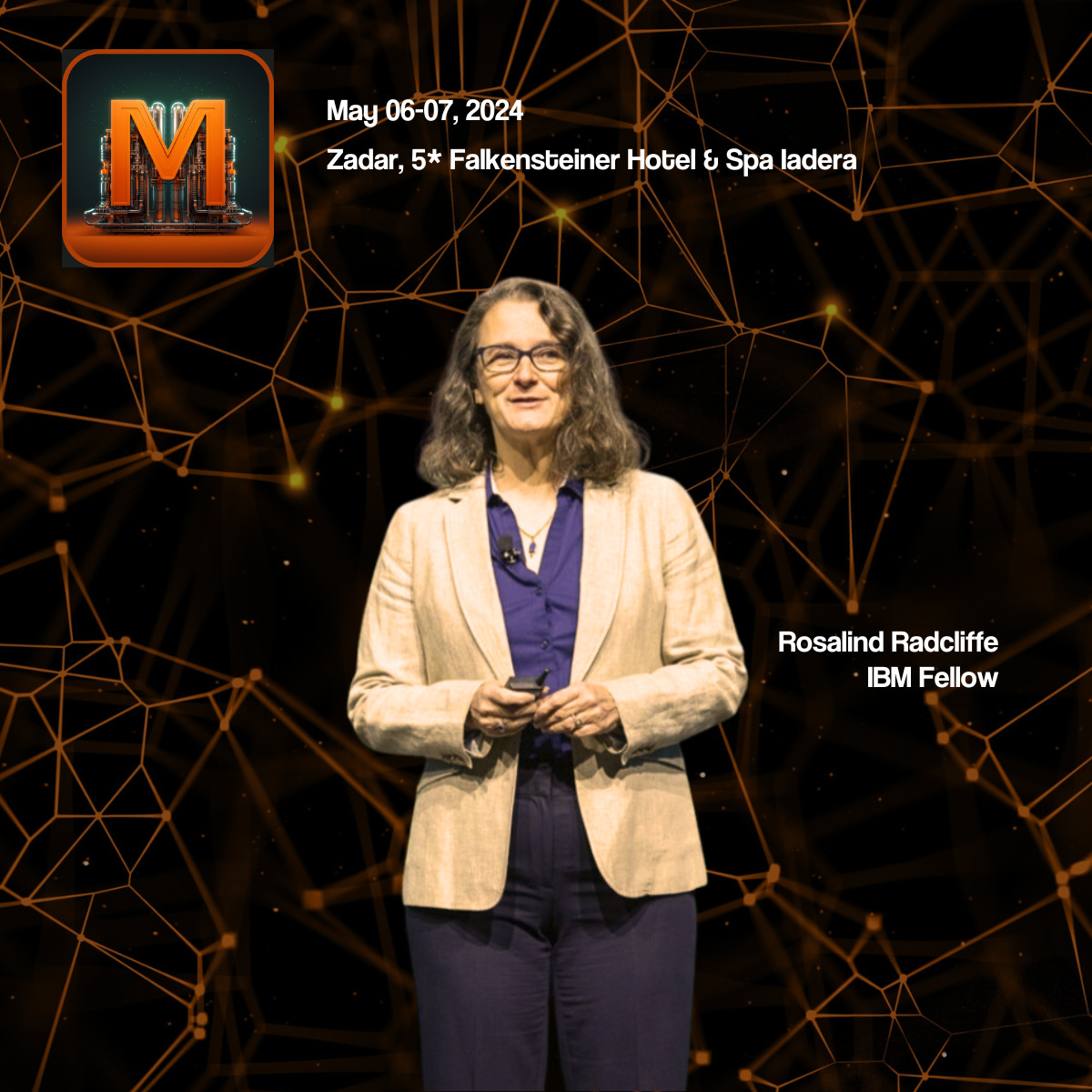Dear fellow mainframer,
Over the past few years, the mainframe community has undergone significant consolidation. Recently, during a conversation with an IBMer, I learned that while some customers have migrated away, those who remain are now truly committed to this mainframe platform. It’s no longer an afterthought; the mainframe is a strategic cornerstone for their operations, and they’re actively investing in its modernization. An editorial in the Arcati Yearbook 2024 echoes this sentiment, emphasizing the palpable surge of new energy within the mainframe community.
However, let’s acknowledge that nothing’s perfect. Rather than rigidly defending “the truth,” we should foster an open dialogue within the IT community. By embracing diverse perspectives and encouraging constructive conversations, we can collectively shape the future of mainframe technology.
Rosalind Radcliffe: Championing Mainframe Transformation
Last month we announced the Mighty Mainframe conference. It presents an ideal opportunity for clients who are still in the process of defining their modernization strategy, particularly those who may be undecided or not yet fully convinced of the benefits of modernization. For these individuals, the conference offers a comprehensive platform to explore various modernization approaches, hear success stories from DATEV, UBS, and engage with experts who can provide valuable insights and guidance tailored to their specific needs. A little reminder for those of you who don’t know – it is taking place May 6-7, in Zadar, Croatia. If the Croatian coast isn’t the reason to visit, the wizards of mainframe modernization will persuade you. Register here!

Speaking of the conference, I’d like to introduce our keynote speaker Rosalind Radcliffe, a Fellow at IBM. Her focus is on transforming the IBM CIO office into a hybrid cloud champion, driving DevSecOps adoption and application modernization. She works across the office and with R&D to establish standardized tools and practices with the goal of creating a secure, agile and automated development environment. Her previous experience includes implementing modern toolchains for z/OS and guiding clients on their DevOps journey. A renowned speaker and inventor, she’s also the author of “Enterprise Bug Busting”. Her session at the Mighty Mainframe conference will be based on the role of an executive individual contributor in large transformations. If that sounds interesting, reserve your spot on the link below!
Industry Insights
Arcati Yearbook has long been a valuable source of information about the state of mind of the mainframe community. It started as an effort of Trevor Eddolls from iTech-Ed Ltd. Now, they merged with Planet Mainframe and here is the new Arcati Yearbook 2024. It’s slightly more commercial with more sponsored content, but I still find it very respectable.
I appreciate the expanded information about the demographics of the respondents since this is crucial for understanding any survey (I am missing information about the total number of respondents though). I would have expected to see more questions about the adoption of DevOps, but hopefully, they will come next year.
Here are some insights I found particularly interesting:
70% of mainframe shops are managed entirely in-house, while 9% are outsourced and 17% are partially outsourced.
I expect the number of outsourced mainframe shops will further increase due to the skills gap and ageing population of mainframers.
The top 3 priorities for 2024 are: Systems or application modernization 58%, General IT security 49% and Cost optimization 42%.
Modernization is obviously a top priority – that’s why we organized the Mighty Mainframe conference all around modernization.
Another question confirmed about 60% of respondents indicated that their apps would be maintained and actively integrated with new apps.
It clearly confirms strategic commitment from those who stayed on the mainframe. They are investing and modernizing.
56% of respondents indicated that their mainframe systems participate partly in SOA/Web services, well up from the 33% last year. Only 24% indicated that their mainframe participates fully in Web services and 8% (34% last year) indicated their systems did not participate at all.
Mainframe is obviously no longer an island, but there is still a lot of work to be done here. I guess we should talk about API, instead of SOA/Web services.
9% of respondents indicated that they were already implementing AI/machine learning models on their mainframe systems, while another 21% indicated that they were in progress. Another 50% indicated that they were in the planning stages.
I was also a bit surprised by the quick adoption of AI. However, I am convinced that most of the clients will do AI inference (first) and AI training on Z (later), and IBM will be putting much more AI computing power on their chips.
A resounding 60% of respondents show no interest in moving their existing applications from COBOL to JAVA.
COBOL applications work just fine and why should we migrate, right? That’s what the clear majority thinks. However, some customers want to enable young developers, but I think DevOps and Cobol/Java co-existence is the more robust approach.
67% of the respondents indicated their organizations operate hybrid cloud environments (up from 42% last year and 21% the previous year). About 15% reported that they did not (down sharply from last year’s 40%), while another 15% indicated that they were in the planning stages to set up hybrid cloud environments.
It is clear now that the hybrid cloud has become a mainstream approach for mainframe customers. I reckon most of the customers are still trying to find the optimum mix.
All of this shows me that the mainframe community is embracing change and modernization even faster than I expected. Can’t wait to see what will unfold in the near future. Until then, write me your POV on this year’s Yearbook.
Falls Sie Fragen haben, sind wir nur einen Klick entfernt.


